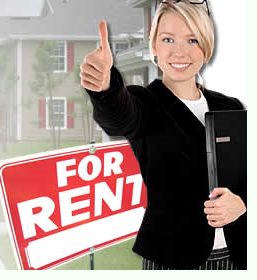Posted by on October 24, 2015 under Landlord Tips, Marketing for Landlords, Tenant Screening & Background Checks | 
If you are renting your home, you want to attract the best tenants. To attract the best tenants, you need to make your rental stand out among other units in the sea of available housing. No landlord wants to find themselves in a position of having to offer their unit to a less than desirable tenant because they simply did not get enough high value tenants applying.
- Don’t overcharge for screening your tenant. Ideally, you won’t charge them more than it costs you. In fact, in some states this is the law. Applying for housing costs renters a fortune, especially in competitive markets. Being reasonably priced during this time will ensure you have a variety of applicants to choose from for your next tenancy. Charging a reasonable fee for the application also lets your tenants know that you will be a reasonable landlord. Online tenant screening companies like E-Renter.com can provide you with the ability to push payment for the tenant screening report to your tenant – that way, your tenant is assured they are paying only for the cost of the screening.
- Consider bundling maintenance services with the rental price. For example, a lawn service or even a house-cleaning service that comes every other week can often cost less than $100/mo., but can provide your renters with a huge sense of relief that these things will be taken care of during their time in the house. You get the added benefit of knowing your property will be kept in top form, too.
- Gather your OWN references and get a background check on YOURSELF. During the latest economic downturn, many tenants faced surprised foreclosures because their landlords were unable to pay their mortgages. Many tenants have also previously had bad experiences with landlords who unfairly hassled them about returning security deposits, invaded their privacy, failed to maintain the unit, etc. Offering them references from recent renters who had a good experience with you, and including a recent background check on yourself that shows no bankruptcies, liens, or judgments, is a great way of showing them that you understand that renting is a two-way street of trust – you need to be able to trust them, and they need to be able to trust you. You can use a background check service like BackgroundReport.com to obtain a background check, and let tenants know they can call in to verify the report is valid.
Posted by Teresa on July 25, 2013 under Landlord Tips, Screening and Background Checks | 
 Smart landlords and property managers do a very thorough job of screening tenant applicants. They check references and work places, former landlords and addresses. And of course, they have a background check and tenant credit check done.
Smart landlords and property managers do a very thorough job of screening tenant applicants. They check references and work places, former landlords and addresses. And of course, they have a background check and tenant credit check done.
But how many of your prospective tenants are checking YOU out? And what do you need to do to ensure you’re attracting the type of tenant you want—who will be as choosy about you as you are about them? After all, if you each choose the other, the landlord-tenant relationship will have a better chance of success!
What Great Tenants Look for in a Landlord:
- Professional behavior and associations. Tenants want landlords who are professional businesspeople. Who take their business seriously enough to belong to professional associations. If you belong to your local apartment association, the National Association of Residential Property Managers, or other group, say so on your website!
- Organization: Tenants are impressed when paperwork is ready to be signed, and when processes are documented. Do you have lease applications, background check authorizations, receipts, leases, move-in and move-out lists, emergency contact information and other forms ready to go at all times? Or are you fumbling around looking for forms? It never looks good to tell a prospect that you’ll need to get back to them for necessary paperwork.
- Great reputation: People will talk, and if your applicant asks current or former tenants about you, what will they hear?
- Reliability: Are your leasing office phones answered promptly? Even if you’re a one-person operation, it matters. If you miss calls, do you return them right away? Can tenants count on you to be available when they need you?
- Honesty: Be truthful at all times, even if that means pointing out issues with the rental apartment or house. Better that prospects know up front and make an informed decision, than starting out the relationship on a negative note.
- Communication: As in every relationship, it comes down to communication. If your skills are sub-par, good tenants will know it.
You may not realize that tenant applicants are checking you out, but it never hurts to put your best foot forward, just in case!
Posted by Teresa on July 18, 2013 under Landlord Tips, Lease and Rental Agreements | 
 In Washington and Colorado, voters decided last year that marijuana should no longer be illegal for recreational use. Both states are hammering out rules, regulations and policies to cover this new freedom. But landlords can be stuck in the middle, since pot is still illegal under federal law. Many have added simply added marijuana smoking to their overall smoking bans to keep things simple.
In Washington and Colorado, voters decided last year that marijuana should no longer be illegal for recreational use. Both states are hammering out rules, regulations and policies to cover this new freedom. But landlords can be stuck in the middle, since pot is still illegal under federal law. Many have added simply added marijuana smoking to their overall smoking bans to keep things simple.
But if you don’t live or own rental property in either Washington or Colorado, marijuana is still illegal. And as a landlord, you don’t have to put up with any illegal drug use on your property.
The best way to prevent it is to implement and enforce a zero tolerance drug policy—and to make sure that every applicant and tenant is aware of it. Put it on the lease application and of course, in the lease itself.
Landlords can be at great risk when tenants break the law by using their property for illicit purposes—even if they are completely unaware of it. Hands-on management and close-up monitoring with routine inspections can help you avoid this problem. Of course, you’ll need to give tenants ample notice that you plan to enter the unit, and you certainly can’t snoop through their drawers and closets. So how can you tell if illegal drugs are around?
Many landlords will tell you that their tenants aren’t all that careful when it comes to hiding their drug paraphernalia. Or, you might just catch the odor of marijuana wafting out an open window or through a vent when you’re walking around your property. Keep your ears and the lines of communication open, and you might have other tenants tell you that they’ve seen signs that could indicate drug activity.
When you suspect tenants are using, buying or selling drugs in your rental property, it’s in your best interest to deal with it. If your lease contains a clause that tenants agree to not violate laws, including possession, use, manufacture or sale of illegal drugs, then he or she is violating the lease agreement. Your next move should be to follow your states laws and initiate eviction proceedings.
Evicting over marijuana smoking might seem like evicting over beer drinking, but as long as it’s illegal, you could be open to litigation. It also sends a signal to all tenants that you will always enforce the terms of your lease, 100%. Otherwise, the risk is just too great.
Posted by Teresa on June 19, 2013 under Landlord Tips, Tenant Credit Checks | 
 Have you been thinking about becoming a landlord? Do you think you have what it takes to be a successful one? Despite the rise in home prices over the past couple of years, it could still be a great time to purchase investment property in your neck of the woods. Mortgage rates remain at historic lows, and some bargains are still out there.
Have you been thinking about becoming a landlord? Do you think you have what it takes to be a successful one? Despite the rise in home prices over the past couple of years, it could still be a great time to purchase investment property in your neck of the woods. Mortgage rates remain at historic lows, and some bargains are still out there.
New landlords are typically new investors, but the club also includes folks who’ve had a hard time selling their homes, who are turning to renting to keep the mortgage paid. And while there are plenty of resources out there for newbies, the advice of seasoned landlords can be priceless.
Here’s a compilation of what it takes to be a successful landlord, as provided by our clients over the years:
Business acumen: Treating the landlording business like a hobby is a mistake. It’s a business, in which you are trying to make money. Never forget that. Be professional. Keep excellent records. Maintain procedures and follow them. Pay for professional tax and legal advice.
Toughness: You’ll have to enforce your rules in every situation, with every tenant or prospective tenant. At times, tenants will appeal to your softer side, asking for leniency, extensions on the rent or other favors. And you’ll have to be tough.
Patience: On the other hand, you’ll be dealing with people, not numbers. Being patient (and even kind) while enforcing your rules will go a long way to establishing a good rapport with your tenants. You’ll also need patience when your phone rings at 2 a.m., when a tenant stops up the sink for the fourth time and when your landscaping crew cuts back the wrong tree.
Outgoing personality: You don’t need to be s total extrovert or comedian to be a successful landlord. But you should be good at dealing with people, able to confront or engage them as the situation warrants, and ready to smile—even when you don’t feel like it. Remember, your tenants are your customers. A pleasant demeanor will go a long way.
Consistency: Some landlords apply the rules according to the tenant or prospective tenant. For example, Tenant A’s kids are allowed to have huge float toys in the pool because you like them better than Tenant B’s kids. Or, the nicely dressed white female prospective tenant does not have to undergo a tenant credit check, but the casually dressed minority male applicant does. The first scenario could make for upset tenants; the second could have you accused of discrimination. Be consistent with all of your rules, in every situation, for every tenant.
The ability to say “no”: You have certain obligations to your tenants, including safe housing, heat, water, trash pickup and functioning plumbing. Depending on the terms of the lease, you may also be obligated to provide Internet, cable TV, air conditioning or a clean swimming pool.
You are not obligated to provide housing to people who don’t meet your minimum requirements for credit history, income or employment. You’re not obligated to allow a tenant to rescue a kitten if you’ve a no-pets policy. And, you’re under no obligation to finance your tenants’ housing. You provide the housing, and they pay you. On time. You’re within your rights to say “no” to any and all other requests—and if you have a hard time saying “no,” you might not be cut out for the landlording business.
Posted by Teresa on May 31, 2013 under Landlord Tips | 
 Stewart, who lives in Pennsylvania asked us what we know about the success rate of landlords whose rental properties are located hundreds of miles away. He was thinking about buying a single-family house in Florida, where he has a vacation home. “It’s priced right, and I’m down there a couple of times a year,” he said. “But I think I’ll be worried about not checking on my property enough.”
Stewart, who lives in Pennsylvania asked us what we know about the success rate of landlords whose rental properties are located hundreds of miles away. He was thinking about buying a single-family house in Florida, where he has a vacation home. “It’s priced right, and I’m down there a couple of times a year,” he said. “But I think I’ll be worried about not checking on my property enough.”
Stewart is right to be worried. While he can certainly hire a property manager to keep an eye on things, it’s usually better for landlords to have hands-on management of their rental property.
Why? For one thing, property management costs money. Showing the property, vetting applicants, running background checks and collecting rent take time, and for that you have to pay—and it will consume a portion of your profits.
As Stewart mentioned, another good reason to be a local landlord is because you can check on your property more often. Driving by to see if any strange (as in criminal) activities are going on, checking to see if security lights are on at night and having the opportunity to chat with tenants are all benefits of hands-on rental management. When tenants know you, the relationship is going to be better, and they might even take better care of your property!
Absentee landlords usually have more problems with their rental properties, although they don’t always know it. More parties, calls to police, trash piling up and uncut lawns tend to occur where landlords are not in the picture. Visibility means something, both to tenants and to the neighbors that have to live with your tenants!
However, if Stewart is going to buy the Florida property, he should hire a PM. It’s too risky to manage a rental property through the Internet and mail. The right property manager is worth the money they charge, if they can fill vacancies, find the best tenants and see repairs and maintenance are kept up.
Posted by Teresa on May 17, 2013 under Fair Housing Act, Landlord Tips, Tenant Screening & Background Checks | 
 Being a landlord isn’t easy. It’s a challenging way to make a living or earn extra money. However, investing in real estate and leasing property can be quite rewarding when done right. Avoiding these common landlord errors can keep you out of legal trouble, and make things a little easier.
Being a landlord isn’t easy. It’s a challenging way to make a living or earn extra money. However, investing in real estate and leasing property can be quite rewarding when done right. Avoiding these common landlord errors can keep you out of legal trouble, and make things a little easier.
Using the same old lease, or someone else’s lease: Landlords who’ve been leasing properties for a long time often use the same lease for decades. And those who are new at it, often download a lease agreement off the Internet, or borrow one from a friend. It’s true that most leases contain common language, but it’s best to have yours customized for your property, your circumstances and your preferences. It could be well worth it to sit down with a landlord-tenant lawyer and have your lease reviewed.
Forgetting that time equals money: You might not mind doing repairs, cutting the grass or performing maintenance at your rental properties. If you’re an expert at these things, it could be cost-effective to do it yourself. However, if your work is sub-par, it takes longer than it should or requires follow-up repairs, you are probably wasting your time—and losing money. Hire experts to do the things you can’t do, and focus on what you do well. Fill empty units, update your website or take classes to make yourself a better businessperson.
Breaking anti-discrimination laws: You cannot refuse to rent to a prospective tenant based on race, national origin, religion, familial status, color, gender or disability. Landlords are not allowed to ask prospective tenants questions that refer to these things, either.
Basing acceptance of a tenant on anything other than cold, hard facts: Look at an applicant’s previous rental history, current and former employment, income, and credit worthiness. Run a background check to weed out those with criminal records. But don’t make decisions based on how a tenant applicant looks or dresses, or the car he or she drives.
Failing to follow the same procedures with every applicant: You could be accused of discrimination if you don’t require each applicant to follow the same process.
Making decisions based on emotion: Every experienced landlord has regretted allowing a tenant to be late on rent “just this once,” or to letting a tenant move in without paying a security deposit up front because they promised to pay “next month.” Well, “just this once” is never once and “next month” never comes. It’s difficult to be tough, but landlording is a tough business. If you want to succeed, you’ve got to take a hard stance.
Posted by Teresa on May 16, 2013 under Landlord Paperwork and Forms, Landlord Tips | 
 For apartment communities with swimming pools, safety is a concern for landlords and property managers. While some are obligated to follow specific state or municipal regulations, others are guided by common sense.
For apartment communities with swimming pools, safety is a concern for landlords and property managers. While some are obligated to follow specific state or municipal regulations, others are guided by common sense.
Regardless of whether you have to follow laws or regulations, you’ll want to review pool safety with all of your tenants, especially those with children. Use these tips to improve the safety around your community’s pool—and increase the fun for everyone this summer.
- Use clear signage: Not only do clear, legible signs help inform users of the rules, they can also help your case if there should be any problems with injuries or litigation. Posting signs that say “No Lifeguard on Duty,” “No Diving,” “No Access After Dark” and “Keep Gate Closed” are essential.
- Be sure that any guests or non-residents are accompanied by a tenant at all times. Consider selling guest passes for $2.00 or $5.00 per day to reduce the number of guests.
- Enforce a minimum age rule. Children under the age of 15, 16, etc. must be supervised by an adult.
- Don’t allow food or beverages in glass containers near the pool, to reduce the possibility of injury.
- Request that people with infections diseases, skin abrasions, cuts, or other injuries avoid using the pool.
- Do not allow pets inside the pool area.
- Keep trash receptacles close by and empty them frequently.
- Equip the pool area with safety equipment, such as life rings, life hooks and whistles.
- Compile a complete list of pool rules and warnings, include them with the lease, review them with new tenants, and have them initial the page at lease signing.
- Close the pool during inclement weather, especially during and after thunder/lighting storms.
Start your tenant relationship off right by knowing who you’re leasing to. Protect your rental property and assets with tenant background checks. Proper tenant screening will ensure you are leasing to the best possible tenants.
Posted by Teresa on April 19, 2013 under Landlord Tips | 
 In most areas, keeping residents and your rental property safe doesn’t require bars on the windows and doors. Common-sense practices can deter thieves from targeting your property, including crime-fighting landscape design.
In most areas, keeping residents and your rental property safe doesn’t require bars on the windows and doors. Common-sense practices can deter thieves from targeting your property, including crime-fighting landscape design.
Properly placing plants, trees, fences and other landscape elements can make your property unattractive to thieves and other lawbreakers. A new approach is called Crime Prevention through Environmental Design, which includes using landscaping and site layout to support natural surveillance, access control, territorial reinforcement, and image and maintenance.
Natural surveillance means keeping trees and shrubs trimmed so that all sightlines are clear for tenants and people walking or driving by. This means no overgrown shrubbery in front of windows or low-hanging tree branches covering walkways.
When you discourage the wrong people from entering your property, you’re practicing natural access control. Simple practices like installing noisy gravel paths and shrubs with spines or prickly leaves can keep would-be criminals away from your rental units. Avoid shrubs and trees that allow easy access to second-story windows and balconies.
Territorial reinforcement can mean a simple fence, which designates the boundaries of the property, as well as well-placed lighting, which will reveal anyone sneaking around at night. Keep plants trimmed around light fixtures for optimum coverage.
Remember that promoting a clean and organized image sends a signal that people who live in and own the property care about it and keep an eye on it. Neglected properties with overgrown landscaping, garbage strewn about and broken sidewalks, shutters, fences and other elements invite more problems.
When it comes time for planting shrubs and trees, allow more room between them. Less is more, especially when the plants grow and fill in. You don’t want to provide any hiding places for less-than-desirable visitors!
Posted by Teresa on March 28, 2013 under Landlord Tips | 
 “I thought you said I could have a roommate.”
“I thought you said I could have a roommate.”
“I told you I was going to be getting a dog after I moved in.”
“No, I didn’t realize I wasn’t allowed to park my RV in the parking lot.”
“We didn’t know we weren’t supposed to skinny-dip in the pool.”
Have you ever heard a tenant explain that they broke the rules of the lease because they didn’t know or realize what those rules were? Or because they thought they heard you say it was okay?
Many an experienced landlord can tell stories about the misunderstandings that go on nearly every day with tenants. That’s why it’s so important to establish good communication from the start of your relationship with every tenant.
Here are some tips for improving landlord-tenant communication:
- Never assume. Don’t assume you know what a tenant is thinking or planning.
- Put it in writing. Especially when it comes to changing the terms of a lease, such as allowing a roommate or a pet, put it in writing and have all parties to the lease sign and date it. Even if it’s simply to use an extra parking spot, don’t rely on verbal agreements. They’re difficult to remember, not to mention prove in court.
- Over communicate. If you’re going to err on either side, over—don’t under—communicate.
- Use multiple platforms. Some tenants will prefer to talk with you on the phone, others via text. Still others will only respond to email. All legal correspondence should be delivered through the U.S. Mail.
- Ask questions. Whether you’re reviewing the terms of the lease, or making an appointment for a maintenance call, make sure the tenant understands what you’re saying by asking clarifying questions. And if you’re unsure about what the tenant is saying, ask again.
- Listen. Be an active listener. Make eye contact. Watch body language. Repeat back what you’ve heard and ask if that’s what the tenant really meant.
- Don’t interrupt. Show interest, provide feedback and be patient when your tenants are speaking.
Good communication takes some effort, but remember that your tenants are your customers, and establishing positive communication will go a long way to keep the relationship positive.
Start your tenant relationship off right by knowing who you’re leasing to. Protect your rental property and assets with tenant background checks. Proper tenant screening will ensure you are leasing to the best possible tenants.
Posted by Teresa on March 14, 2013 under Landlord Tips | 
 We recently noticed a news story about a tenant complaining her landlord asked her to post a “Do Not Flush Tampons” sign in her bathroom. Apparently, the landlord blamed the tenant for plumbing problems in the four-unit building that was built in 1945.
We recently noticed a news story about a tenant complaining her landlord asked her to post a “Do Not Flush Tampons” sign in her bathroom. Apparently, the landlord blamed the tenant for plumbing problems in the four-unit building that was built in 1945.
The story unleashed quite a response, mostly consisting of stories describing plumbing problems caused by all kinds of things that shouldn’t be flushed. Whether the landlord was justified in asking the tenant to post the sign was no longer the focus.
Interacting with tenants invariably means dealing with complaints—whether they’re about you, the neighbors, the heat or any of the other approximately 10,000 subjects tenants complain about.
Here are some tips for handling tenant complaints:
- First, it’s important to establish good communication with tenants from day one. While you don’t want to encourage them to find fault with everything, do let tenants know that you want to know when they have a problem. Having the opportunity to make repairs keeps your property in top condition, and allows you to check on how the tenant is treating his or her unit.
- Devise a tracking system. Ask tenants to make requests in writing, and follow up in writing. Create an official form and have tenants complete it, or accept requests by email. You never know when you’ll need written records to back up your actions, so make this a standard procedure.
- Record details of how you handled the complaint. Include dates, times, notes about repairs made and when you followed up with the tenant. These details are important in case the tenant withholds rent for non-performance.
- If a tenant complains about fellow tenant’s behavior, parking habits, noise or other issues, don’t ask them to handle it on their own. Approach the offending tenant, point out the lease provision that prohibits whatever behavior that is offending the other tenant, and ask them to stop. It’s best to not identify the accuser. If the behavior continues, move on to written notices.
Most tenants will have issues at some time or another. Experienced landlords know that this is part of the job. But how you handle complaints can make a big difference in your tenant relationships, your stress level and your success.









